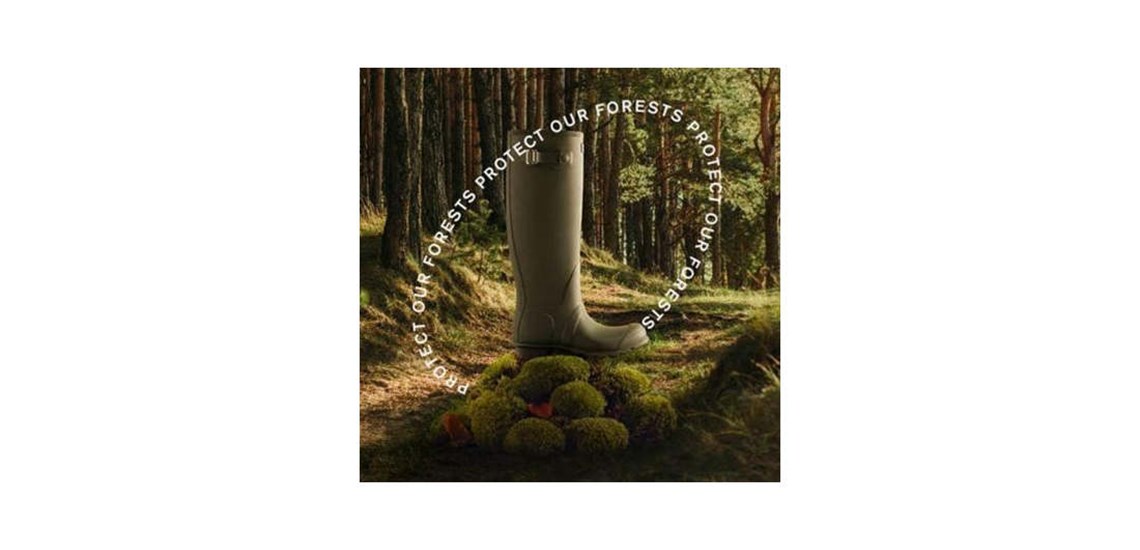Hunter, the world-renowned boot manufacturer, has announced the launch of its sustainability and accountability strategy and initiatives: Hunter Protect. It will detail Hunter’s special relationship with the forest and how the brand protects and supports the environment and people around it – from using innovative lower-impact materials to supporting its communities.
Hunter Builds Green Credentials
Hunter has been working on responsible initiatives since 2011, and new Chief Executive Officer Paolo Porta in March 2021, has seen the production of a clear manifesto to ensure progress and accountability through transparency, pledges and action. Hunter Protect will play an important role in both the day-to-day running of the business and its long-term objectives.
CEO Paolo Porta said: “Our history is rooted in protection. For over 160 years we have protected our community from the elements. We will continue to develop this legacy in two ways; by protecting the rights of every person in our supply chain, and by working with charities to protect the things that we value: our people and our planet.”
Hunter has made seven pledges to hold itself accountable and benchmark progress throughout the entire company:
- By 2025, all of its rubber footwear will be Forest Stewardship Council® (FSC) certified.
- We pledge to work with World Land Trust to protect endangered forests, the species that depend on it and the people that care for it.
- In 2022, 65% of our collection will incorporate FSC®-certified rubber, BLOOM algae foam or recycled textiles.
- By 2022, 100% of its packaging will be recyclable.
- By 2022, the brand will offset all direct carbon emissions from global stores and offices.
- By 2022, Hunter will have conducted inclusive worldwide leadership training to all hiring managers in line with its Diversity and Inclusion Strategy and its new HR policies and procedures.
- Hunter has donated over 150,000 boots to date and every year, pledges to donate a further 15,000 pairs of fully functional boots to global charities, including those that respond to natural disasters, pandemics and the refugee crisis.


















